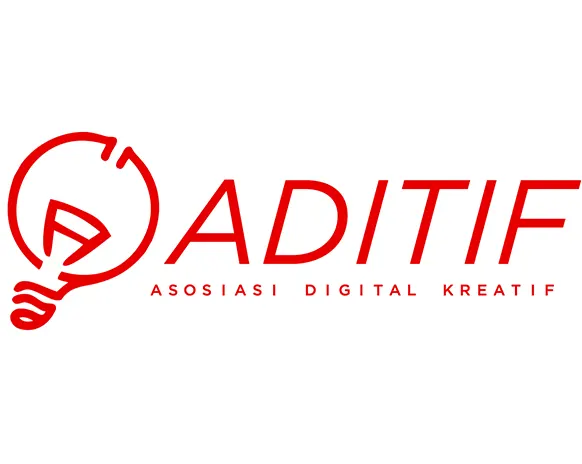In today’s digital era, web security and data protection are crucial to maintain the integrity of information systems. One of the most common security threats is SQL Injection Attack. SQL Injection Attack occurs when attackers exploit vulnerabilities in web applications to insert malicious SQL code and damage databases.
The importance of web security and data protection cannot be overstated. Users’ personal data, such as credit card information and customer data, must be well protected to prevent theft or unauthorized access. If sensitive data leaks, businesses may lose customer trust and their good reputation. Therefore, it is essential for web developers and business owners to pay attention to web security and data protection.
In this article, we will further discuss what SQL Injection Attack is, why this attack is so dangerous, and how to protect websites from this attack.

What is SQL Injection Attack?
SQL Injection Attack is a cyber attack aimed at damaging databases or stealing data from web applications. This attack is carried out by exploiting vulnerabilities in database systems and web applications that can be manipulated through SQL language.
SQL Injection Attack can be performed by inserting dangerous SQL queries into input forms on websites. Attackers can insert SQL commands that lead to data theft or database damage.
Common types of SQL Injection Attacks include:
In-Band SQLi – this attack is performed by inserting SQL queries into input forms on websites, which will directly produce data from the database.
Inferential SQLi – this attack is performed by inserting SQL queries that retrieve information from the database by searching for specific information, but the results are not immediately visible.
Out-of-Band SQLi – this attack is performed by inserting SQL queries into input forms on websites, but the results are not immediately visible, and attackers use another route to receive the results of these SQL queries.
In SQL Injection attacks, attackers can manipulate the SQL language used on websites to steal personal information such as credit card numbers, usernames, passwords, and others. Therefore, it is crucial to protect your website from this attack.
Why is SQL Injection Attack Dangerous?
SQL Injection Attack is highly dangerous because it can damage databases or steal important data from web applications. Here are some negative impacts of SQL Injection Attack:
Impact of SQL Injection Attack on database systems – SQL Injection Attack can disrupt the integrity of databases and damage the data stored in them. This attack can also manipulate data in existing tables or create new tables in the attacked database.
Risk of losing important data – SQL Injection Attack can allow attackers to access and steal sensitive data such as credit card information, customer data, and other confidential information. This can be very detrimental to victims because the stolen data can be used for fraudulent purposes or other crimes.
Negative impact on businesses and reputation – If a business falls victim to SQL Injection Attack, it can result in financial loss and a bad reputation. Customers may lose trust in the business if their personal data is compromised, which can impact the business’s revenue.
To protect themselves from SQL Injection Attack, companies must pay attention to and improve their security systems. Using security technologies such as firewalls and SSL encryption can also help reduce the risk of this attack. Additionally, business owners should take preventive measures such as regularly changing passwords, ensuring their software is always updated, and regularly updating their security policies. With preventive measures and proper care, SQL Injection attacks can be prevented.
How to Protect Websites from SQL Injection Attack
To protect websites from SQL Injection Attack, there are several methods that can be implemented. Here are some ways to protect websites from SQL Injection Attack:
- Implementing security on database systems – Implementing security on database systems is one of the most effective ways to protect websites from SQL Injection Attack. Database systems should be protected with firewalls and data encryption, and sensitive data should be stored securely.
- Using parameter binding and input filtering – Parameter binding is a technique to avoid using SQL queries directly in program code. This is done by using parameters in SQL queries to ensure that the input data received is safe. Input filtering can also help protect websites from SQL Injection Attack by validating incoming inputs and rejecting suspicious inputs.
- Conducting penetration testing to detect security vulnerabilities – Conducting regular penetration testing is an effective way to detect security vulnerabilities on your website. This can help identify security vulnerabilities before attackers find and exploit them. To conduct penetration testing, you can use the services of a cyber security company like Fourtrezz.
In efforts to protect websites from SQL Injection Attack, there is no surefire way to guarantee full security. However, by implementing security on database systems, using parameter binding and input filtering, and regularly conducting penetration testing, you can enhance the security of your website and reduce the risk of SQL Injection Attack.
Actions to Take If SQL Injection Attack Occurs
If a SQL Injection Attack occurs on your website, there are several steps that must be taken to restore the system and prevent similar attacks in the future. Here are some actions to take if a SQL Injection Attack occurs:
Recovery steps after an attack – After a SQL Injection Attack occurs, the first step is to cut off access to the affected system and start an investigation to determine how the attack occurred. You should also take immediate action to restore the system by updating the database system, removing malicious code, and restoring lost or damaged data.
Preventing similar attacks in the future – After restoring the system, you should take steps to prevent SQL Injection Attacks from occurring in the future. This can be done by patching and updating the latest security updates on your database system, as well as ensuring that your system is protected with firewalls and data encryption.
Regularly audit website security – To ensure that your website is safe from SQL Injection Attacks, you should regularly audit website security. This can be done by using security software and conducting periodic penetration testing.
If a SQL Injection Attack occurs on your website, appropriate action must be taken immediately to restore the system and prevent similar attacks in the future. In this regard, Fourtrezz, a cyber security company, can assist you in conducting penetration testing and enhancing the security of your website.
Conclusion
In the rapidly evolving digital world, web security and data protection are becoming increasingly important. SQL Injection Attack is one of the main threats to website security and can cause significant damage to database systems and the risk of losing important data.
Therefore, it is essential to protect websites from SQL Injection Attack by implementing security on database systems, using parameter binding and input filtering, and regularly conducting penetration testing to detect security vulnerabilities.
If a SQL Injection Attack occurs on your website, appropriate action must be taken immediately to restore the system and prevent similar attacks in the future. In this regard, Fourtrezz, a cyber security company, can assist you in conducting penetration testing and enhancing the security of your website.
By recognizing the importance of web security and data protection, and understanding the dangers of SQL Injection Attack, we can take appropriate action to protect our websites from cyber threats and keep our important data safe.










